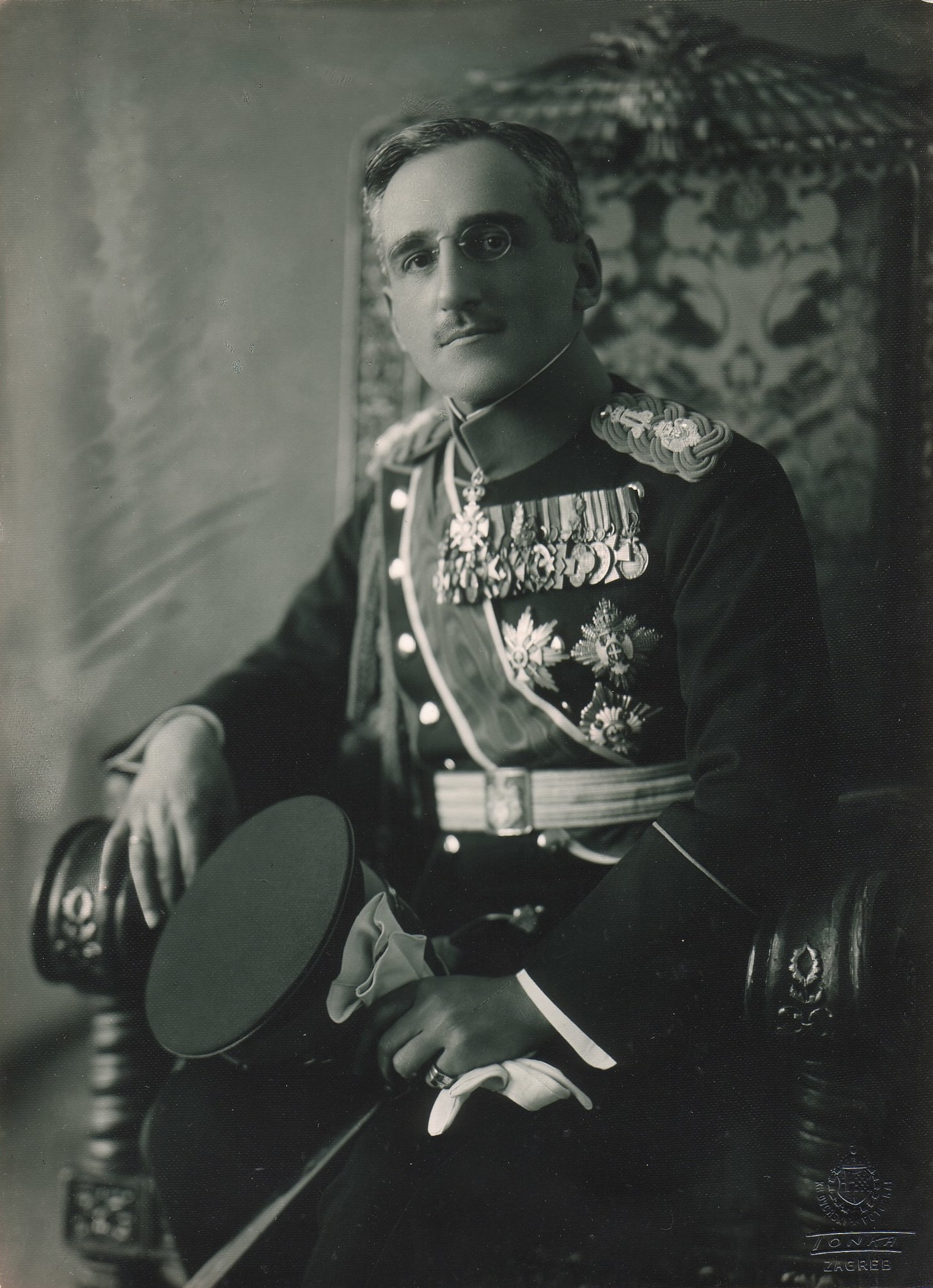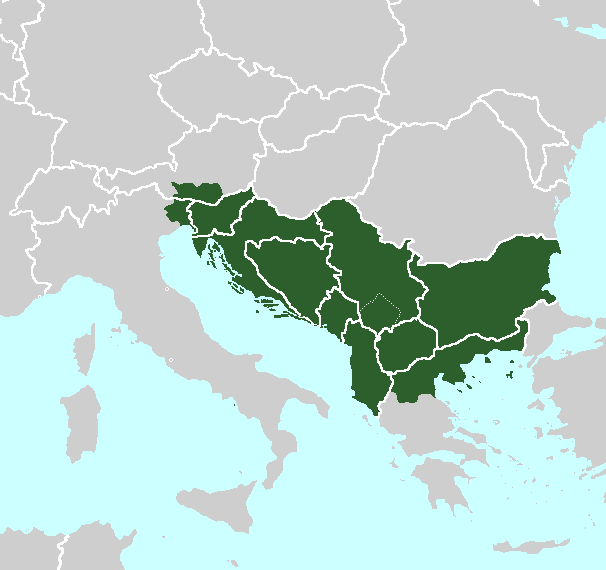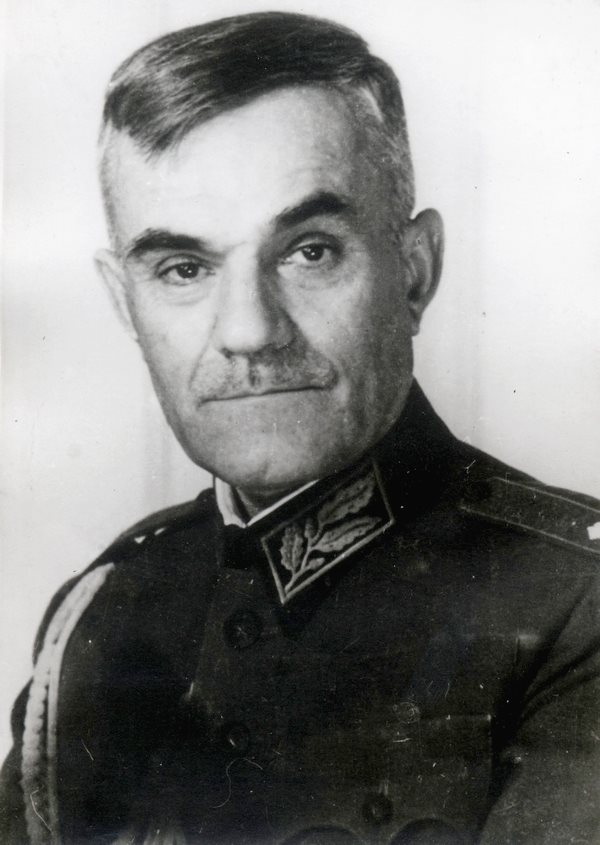|
Zveno
Zveno (), ''Politicheski krag "Zveno"'', officially Political Circle "Zveno" was a Bulgarian political organization, founded in 1930 by Bulgarian politicians, intellectuals and Bulgarian Army officers. It was associated with a newspaper of that name. As a palingenetic nationalist movement, ''Zveno'' advocated for rationalization of Bulgaria's economic and political institutions under a dictatorship that would be independent from both the Soviet Union and the Axis powers. They strongly opposed the Bulgarian party system, which they saw as dysfunctional, and the terror of the Internal Macedonian Revolutionary Organization (IMRO), the Bulgarian Macedonians' liberation movement. ''Zveno'' was also closely linked to the so-called Military League, the organization behind a 1923 Bulgarian coup d'état, coup in 1923, responsible for killing List of Prime Ministers of Bulgaria, Prime Minister Aleksandar Stamboliyski. In 1934, pro-''Zveno'' officers like Colonel Damyan Velchev and Colo ... [...More Info...] [...Related Items...] OR: [Wikipedia] [Google] [Baidu] |
Kimon Georgiev
Kimon Georgiev Stoyanov (; August 11, 1882 – September 28, 1969) was a Bulgarian general who was the Prime Minister of the Kingdom of Bulgaria from 1934 to 1935 and again from 1944 to 1946. He was considered a "master in the art of coup d'etats." Early life Early life and education Kimon Georgiev Stoyanov was born on 11 August 1882 in the town of Tatar Pazardzhik,Tashev 1999, p. 115-117 then part of Eastern Rumelia, into a middle-class family. He was nicknamed "The Greek" because his mother was of Greek descent. His paternal grandfather, called Stoyan Balkachiyata, moved to the town from the village of Debrashtitsa in the early 19th century. His father was Georgi Stoyanov Krustyov, born around 1848. His maternal grandfather was Todor Bogdanov, who came to Pazardzhik from the village of Kalugerovo. His mother was Maria Bogdanova-Abadzhieva, born around 1858. He had an older brother and sister, so he was the youngest child in his family. At the time, his father died of tub ... [...More Info...] [...Related Items...] OR: [Wikipedia] [Google] [Baidu] |
1934 Bulgarian Coup D'état
The Bulgarian coup d'état of 1934, also known as the 19 May coup d'état (, ''Devetnadesetomayski prevrat''), was a ''coup d'état'' in the Kingdom of Bulgaria carried out by the '' Zveno'' military organization and the Military Union with the aid of the Bulgarian Army. It overthrew the government of the wide Popular Bloc coalition and replaced it with one under Kimon Georgiev. History The Popular Bloc, which had held power since 1931, consisted of the Democratic Party, Bulgarian Agrarian National Union (BANU) " Vrabcha 1", the National Liberal Party and the Radical Democratic Party. Although it did not abolish the restrictive laws introduced by the former government of the Democratic Accord and it did not change the way the police functioned, it was met with hostility from right-wing forces such as the Military Union (led by Damyan Velchev), Zveno and Aleksandar Tsankov's National Social Movement, of which the most active were the Zveno activists. After a Military Un ... [...More Info...] [...Related Items...] OR: [Wikipedia] [Google] [Baidu] |
List Of Prime Ministers Of Bulgaria
This is a list of the head of government, heads of government of the modern Bulgarian state, from the establishment of the Principality of Bulgaria to the present day. List of officeholders Principality of Bulgaria (1878–1908) Tsardom of Bulgaria (1908–1946), Tsardom of Bulgaria (1908–1946) ;Governments: * * * * * * * * People's Republic of Bulgaria (1946–1990) ;Governments: * Bulgaria, Republic of Bulgaria (1990–present) ;Governments: * * * * * Timeline See also * Government of Bulgaria * History of Bulgaria * Politics of Bulgaria * List of Bulgarian monarchs * President of Bulgaria * List of heads of state of Bulgaria * List of presidents of Bulgaria (1990–present) * Prime Minister of Bulgaria Footnotes References {{Prime ministers of Bulgaria Lists of prime ministers by country, Bulgaria Prime ministers of Bulgaria, *List Lists of political office-holders in Bulgaria, Prime ministers of Bulgaria Bulgaria history-related list ... [...More Info...] [...Related Items...] OR: [Wikipedia] [Google] [Baidu] |
Dimo Kazasov
Dimitar (Dimo) Totev Kazasov () (17 September 1886 – 28 July 1980) was a Bulgarian politician and journalist, initially from the Bulgarian Workers' Social Democratic Party (BRSDP), and later from several other organizations. He joined the governments formed after the 1923 and 1944 coups. He was MP in the XVIII (1919–1920), XXI (1923–1927), XXVI (1945–1946) National Assembly and in the VI Grand National Assembly (1946–1949). Early life Dimo Kazasov was born in 1886 in Tryavna. He went to highscool in Ruse and graduated in 1904. Between 1906 and 1910 he was a teacher in Tutrakan, Ruse, Burgas, Kula and Voneshta voda. He graduated in law from Sofia University in 1918''.'' He was secretary of the Union of Bulgarian Teachers from 1910 to 1917. Early on he also appeared as a journalist. From 1924 to 1927 he was chairman of the Union of Bulgarian Journalists. Political activity Kazasov was a member of BRSDP from 1902 and from 1919 to 1926 he was a member of its cen ... [...More Info...] [...Related Items...] OR: [Wikipedia] [Google] [Baidu] |
Authoritarian Conservatism
Authoritarian conservatism is a political ideology that seeks to uphold Social order, order, tradition and Social stratification, hierarchy, often with forcible suppression of radical and revolutionary enemies such as Communism, communists, Nazism, Nazis, and Anarchism, anarchists. Authoritarian conservative movements and regimes have included Chiangism in China, Metaxism in Greece, Putinism in Russia, and Francoism in Spain. Although the concept of authority has been identified as a core tenet of conservatism in general, authoritarian conservatism is only one of Conservatism#Ideological variants, many different forms of conservatism. It is contrasted with libertarian conservatism, which has been the most common form of conservatism in the United States. Ideology Historical roots The two philosophical forefathers of conservatism, Edmund Burke and Joseph de Maistre, inspired two separate forms of conservatism. Whereas the first was rooted in a more libertarian Whigs (British p ... [...More Info...] [...Related Items...] OR: [Wikipedia] [Google] [Baidu] |
Yugoslav Irredentism
Yugoslav irredentism was a political idea advocating merging of South Slav-populated territories within Yugoslavia with several adjacent territories, including Bulgaria, Western Thrace and Greek Macedonia. The government of the Kingdom of Yugoslavia sought the union with Bulgaria or its incorporation into Yugoslavia. The government of the communist-ruled Yugoslavia under Josip Broz Tito also sought to create an integral Yugoslavia that would incorporate within its borders: Greek Macedonia, Albania, Pirin Macedonia, at least some of Austrian Carinthia, and for a time the entire Italian region of Friuli-Venezia Giulia. History Proponents of Yugoslav irredentism included both monarchists and republicans. Days prior to Yugoslavia's creation in 1918, Yugoslavist politician Svetozar Pribićević declared that Yugoslavia's borders should extend "from the Soča up to Salonika". Proposals in the interwar period to include Bulgaria within Yugoslavia, included claims by republicans ... [...More Info...] [...Related Items...] OR: [Wikipedia] [Google] [Baidu] |
Fatherland Front (Bulgaria)
The Fatherland Front () was a Bulgarian pro-communist political resistance movement, which began in 1942 during World War II. The Zveno movement, the communist Bulgarian Workers Party, a wing of the Bulgarian Agrarian National Union and the Bulgarian Social Democratic Workers Party all became part of the OF. The constituent groups of the OF had widely contrasting ideologies and had united only in the face of the pro-German militarist dictatorship in Bulgaria. At the beginning, the members of the OF worked together, without a single dominating group. Professional associations and unions could be members of the front and maintain their organisational independence. However, the Bulgarian Communist Party soon began to dominate. In 1944, after the Soviet Union had declared war on Bulgaria, the OF carried out a coup d'état (9 September 1944) and declared war on Germany and the other Axis An axis (: axes) may refer to: Mathematics *A specific line (often a directed line) ... [...More Info...] [...Related Items...] OR: [Wikipedia] [Google] [Baidu] |
Damyan Velchev
Damyan Velchev or Velcev () (4 March 1883, Gabrovo – 25 January 1954, Paris) was a Bulgarian politician and general. From 1925 to 1935 he was the leader of the Military League (Bulgaria) (1919–1947), an organization of Bulgarian officers which carried the 1923, 1934 and 1944 coup d'etats. In 1930 he became a member of the '' Zveno'' group. In 1934 he led the pro-''Zveno'' coup, but did not become a minister and stayed in the background. After King Boris III's counter-coup of 1935 Velchev fled abroad, but later slipped back into the country wanting to make another coup d'état and was arrested. He was sentenced to death in 1936, but Boris spared his life. In 1943 he joined the Fatherland Front, an anti-Axis resistance movement. In 1944 the Fatherland Front seized power and Velchev became Minister of Defence with the rank of colonel general Colonel general is a military rank used in some armies. It is particularly associated with Germany, where historically General off ... [...More Info...] [...Related Items...] OR: [Wikipedia] [Google] [Baidu] |
Bulgarian Army
The Bulgarian Army (), also called Bulgarian Armed Forces, is the military of Bulgaria. The commander-in-chief is the president of Bulgaria. The Ministry of Defense is responsible for political leadership, while overall military command is in the hands of the Defense Staff, headed by the Chief of the Defense. There are three main branches of the Bulgarian military, named literally the Land Forces, the Air Forces and the Naval Forces (the term "Bulgarian Army" refers to them encompassed all together). Throughout history, the Army has played a major role in defending the country's sovereignty. Only several years after its inception in 1878, Bulgaria became a regional military power and was involved in several major wars – Serbo-Bulgarian War (1885), First Balkan War (1912–13), Second Balkan War (1913), First World War (1915–1918) and Second World War (1941–1945), during which the Army gained considerable combat experience. During the Cold War, the People's Republic of B ... [...More Info...] [...Related Items...] OR: [Wikipedia] [Google] [Baidu] |
Bulgaria
Bulgaria, officially the Republic of Bulgaria, is a country in Southeast Europe. It is situated on the eastern portion of the Balkans directly south of the Danube river and west of the Black Sea. Bulgaria is bordered by Greece and Turkey to the south, Serbia and North Macedonia to the west, and Romania to the north. It covers a territory of and is the tenth largest within the European Union and the List of European countries by area, sixteenth-largest country in Europe by area. Sofia is the nation's capital and List of cities and towns in Bulgaria, largest city; other major cities include Burgas, Plovdiv, and Varna, Bulgaria, Varna. One of the earliest societies in the lands of modern-day Bulgaria was the Karanovo culture (6,500 BC). In the 6th to 3rd century BC, the region was a battleground for ancient Thracians, Persians, Celts and Ancient Macedonians, Macedonians; stability came when the Roman Empire conquered the region in AD 45. After the Roman state splintered, trib ... [...More Info...] [...Related Items...] OR: [Wikipedia] [Google] [Baidu] |
Rationalization (economics)
In economics, rationalization is an attempt to change a pre-existing ad hoc workflow into one that is based on a set of published rules. There is a tendency, in modern times, to quantify experience, knowledge, and work. Means–end (goal-oriented) rationality is used to precisely calculate that which is necessary to attain a goal. Its effectiveness varies with the enthusiasm of the workers for the changes being made, the skill with which management applies the rules, and the degree to which the rules fit the job. Rationalization aims to increase efficiency by better using existing possibilities: The same effect can with fewer means, or with the same means to be obtained. In the industry, thereby, machines often designate the replacement of manpower (rationalization investment). It is reasonable and appropriate for operational conditions to increase under changing conditions; alongside the goal, productivity, and economy. Julien Freund defines rationalization as "the organization ... [...More Info...] [...Related Items...] OR: [Wikipedia] [Google] [Baidu] |
Aleksandar Stamboliyski
Aleksandar Stoimenov Stamboliyski (; 1 March 1879 – 14 June 1923) was a Bulgarian politician who served as the List of Prime Ministers of Bulgaria, Prime Minister of Kingdom of Bulgaria, Bulgaria from 1919 until 1923. Stamboliyski was a member of the Bulgarian Agrarian People's Union, Agrarian Union, an Agrarianism, agrarian peasant movement which was not allied to the List of Bulgarian monarchs, monarchy, and edited their newspaper. He opposed the country's participation in World War I and its support for the Central Powers. In a famous incident during 1914 Stamboliyski's patriotism was challenged when members of the Bulgarian parliament questioned whether he was Bulgarian or not, to which he shouted in response "At a moment, like the current, when our brothers South Slavs are threatened, I am neither a Bulgarian nor a Serb, I am a South Slavs, South Slav!". This statement relates to his belief in a Balkan Federation which would unite the region and supersede many of the nati ... [...More Info...] [...Related Items...] OR: [Wikipedia] [Google] [Baidu] |





